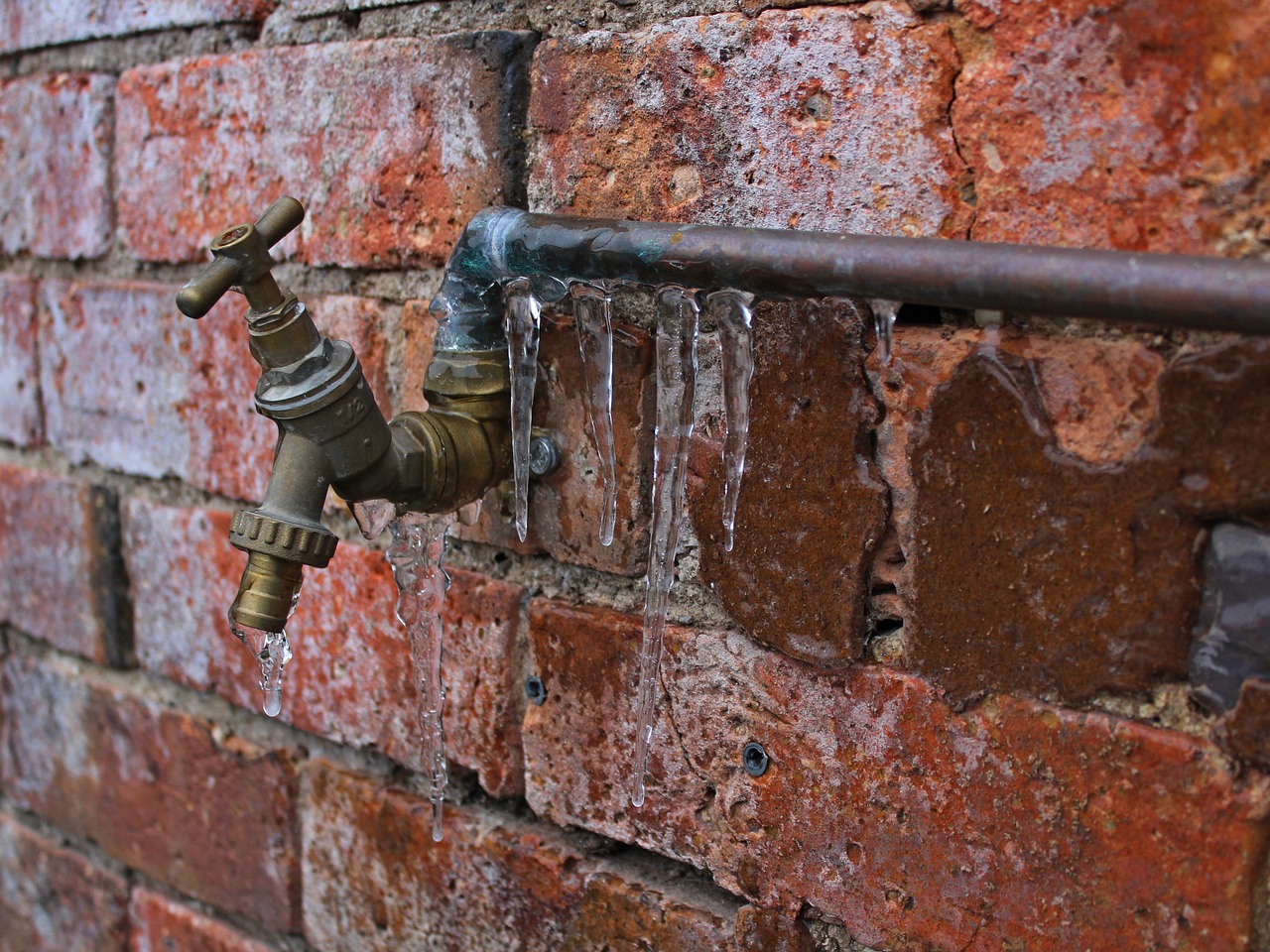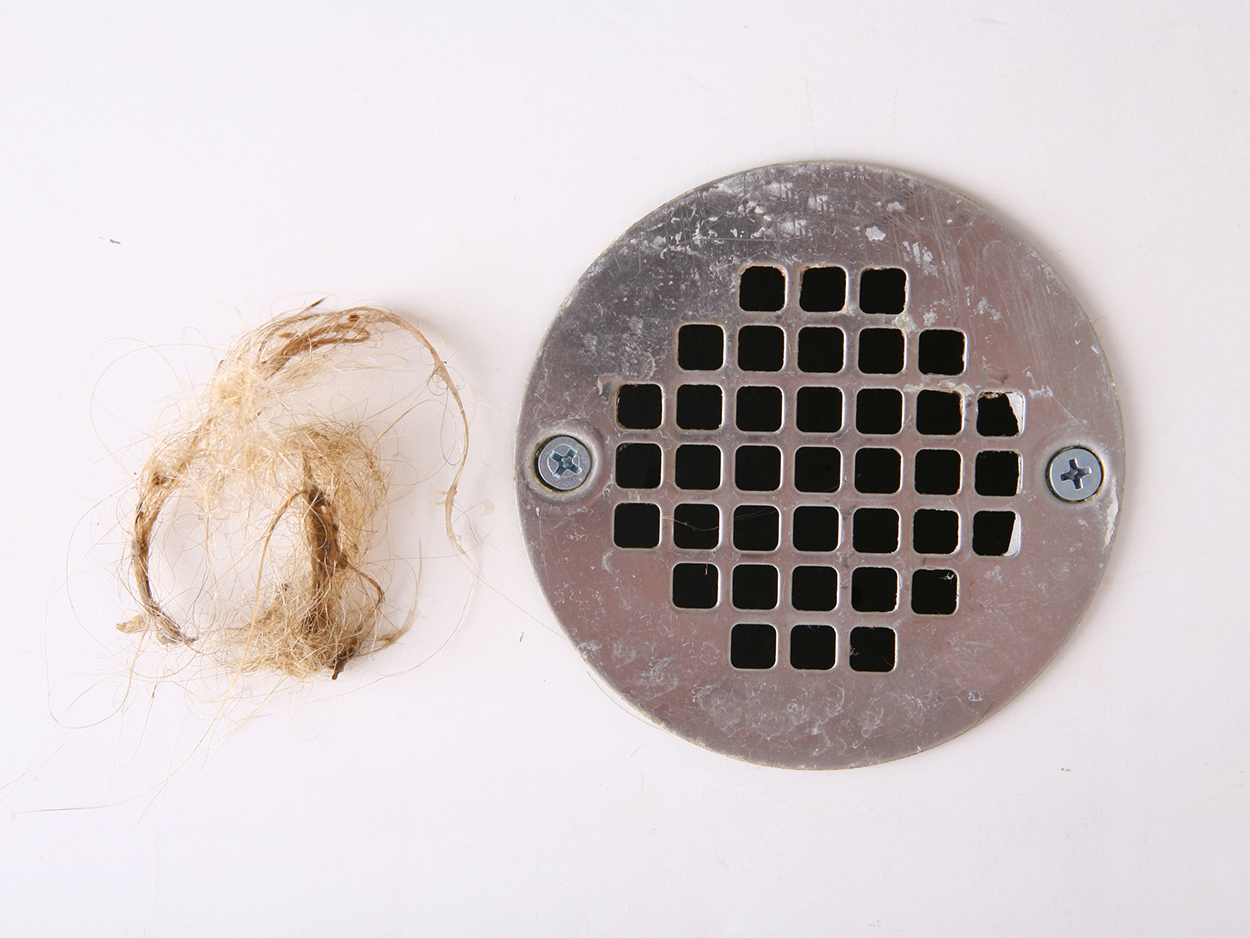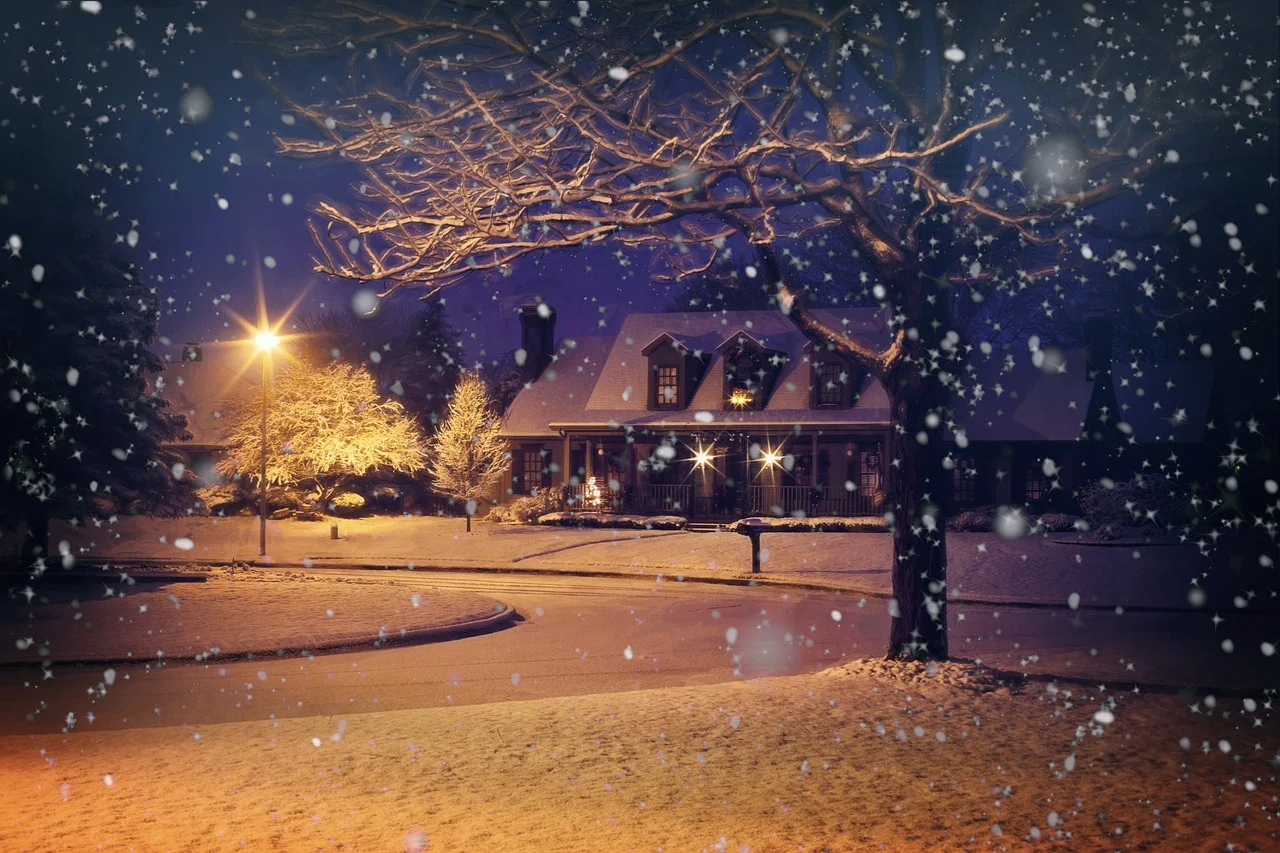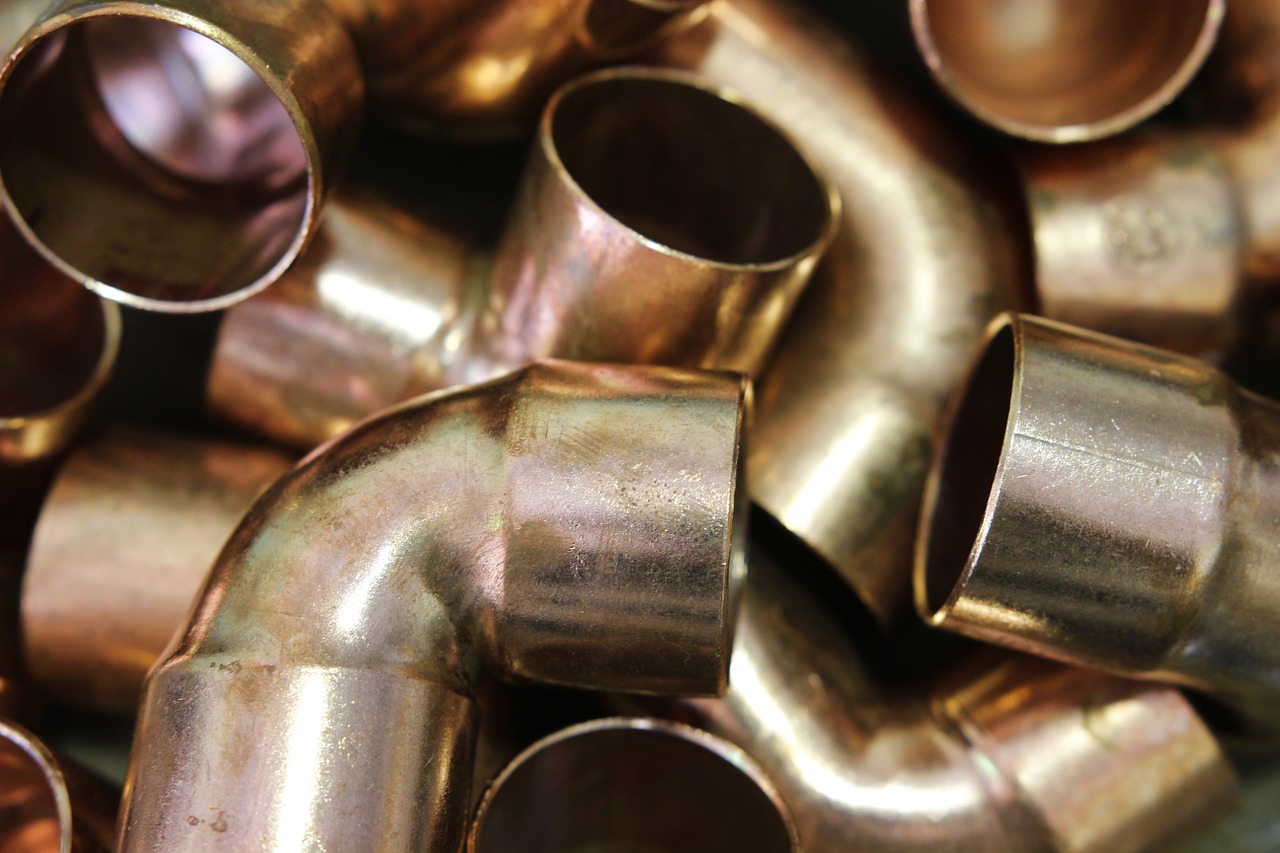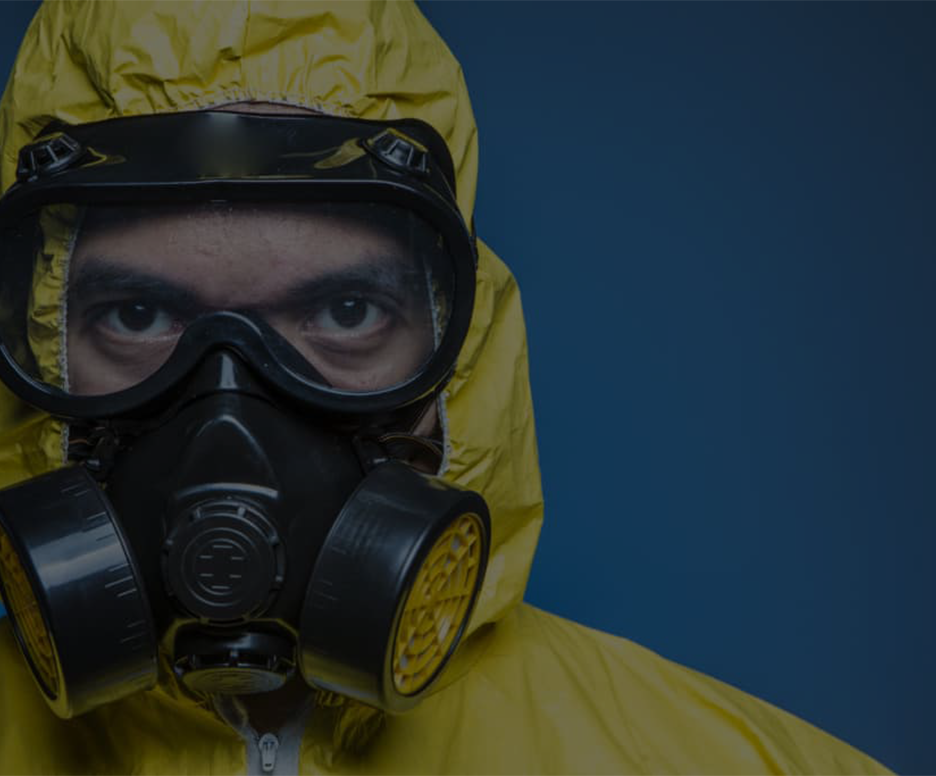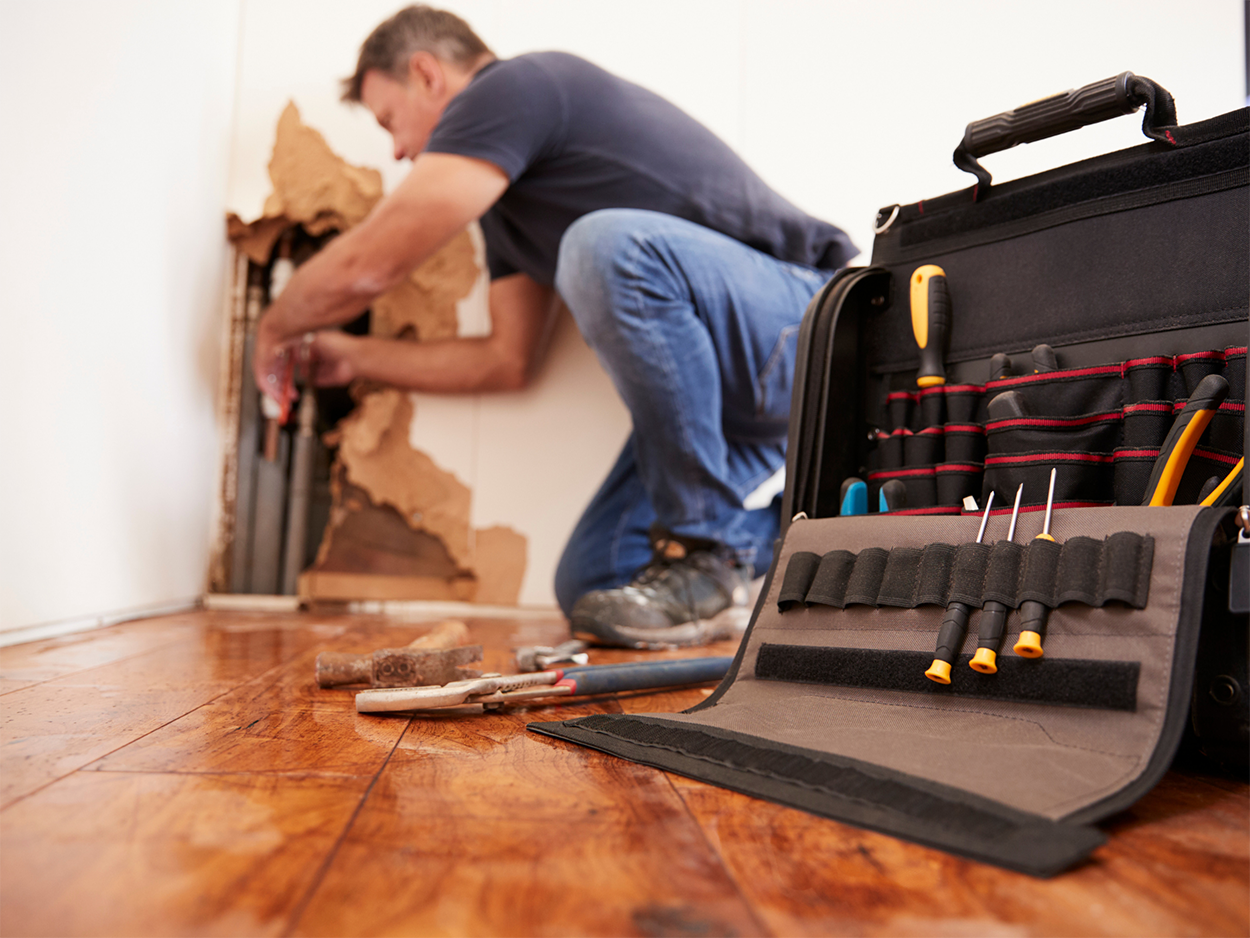
Burst & Damaged Pipes: How Leaks Can Cause Water Damage
By 911 Water Damage Experts
Believe it or not, one of the most common causes of water destruction in homes are broken pipes. Nearly every homeowner will experience a pipe burst or leak at some point.
Most homes have numerous pipes that burst or break which include sewage pipes and sink pipes.
These are located in the basement, interior or exterior walls, underground or ceilings. Regardless of where the pipe is found, it’s crucial to fix broken pipes quickly to prevent water damage and mildew or mould growth.
Most pipes burst or leak without warning, and it can be days, weeks or even months before you notice the signs of a damaged pipe. However, once you do spot a leaking or broken pipe, it’s critical to act fast.
Water seepage that’s left attended can also impact your family’s health, as bacteria and mould flourish in damp environments. Keep in mind that broken pipes will damage your property and belongings, and your furniture, appliances, carpets, rugs and clothes.
What Causes Broken Pipes?
Throughout Florida, it may be caused by a rainstorm that the roof just couldn’t support anymore.
Up north in New York, the pipes may have frozen over and burst. For example in California, it’s possible that an earthquake caused them to crack. Whatever the reason is, broken pipes are a huge problem.
Changes in pressure over time can cause the pipes to break, leak, and subsequently damage your valuables. Your furniture, appliances, carpets, rugs, and even clothes can all be damaged in a broken pipe accident.
Broken pipes occur for many reasons, with some of the most likely causes being:
-High water pressure
-Freezing temperatures
-Corrosion and aging
-Clogs
-Tree roots
-Shifting soil
-Broken pipes tend to be the symptom of another problem, and that problem will also need to be resolved.
Many homeowners are only aware of the cause after a pipe has already burst. However, recognizing common causes of broken pipes can help you identify why your pipe burst so the situation can be remedied quickly.
Freezing Temperatures
Freezing temperatures are a common cause of broken pipes, as frozen water increases pressure within the pipe. As the water within the pipes freezes, the water solidifies into ice and expands, potentially bursting the pipe which can no longer contain the volume.
Even in warmer climates, many homes are at risk due to their lack of adequate cold temperature insulation, especially during an unseasonably cold year when water freezes unexpectedly.
Pipe Corrosion And Aging
As pipes age, they corrode or wear down over time, making them susceptible to leaks and bursts.
Water pipe damage from corroded pipes may occur without warning, or it may start with slow dripping that worsens over time.
If you live in an older home, it’s crucial to have your copper pipes inspected and repaired or replaced.
Clogs Inside Pipes
Clogs are another potential cause of water pipe damage. Foreign substances can catch and gather within pipes, eventually leading to clogs that increase water pressure. If the pressure rises too much, the pipe will burst.
Typical materials that result in clogs include hair, dirt, soap, minerals, food waste, toilet paper and even toys. You can prevent these clogs by minimizing the foreign substances that go down your shower, toilet and sink pipes.
Tree Roots And Soil Shifting
Underground pipes are susceptible to damage from tree roots and soil shifting. Tree roots on your property can grow underneath your home or toward underground pipes, potentially puncturing water or sewage pipes.
Alternatively, soil can become unstable if construction is happening nearby, and an underground pipe may be impacted. Soil can also shift over time due to erosion or other geological factors.
Repairing Broken Pipes
Burst pipe water damage is a serious problem.
Broken pipes that have resulted in damage to your home will require water damage restoration which is a service that requires a specialized skill set to remove water from your home and adequately eliminate any health and safety risks.
As soon as you discover broken pipe water damage, shut off the water supply and contact an IICRC-certified professional at a water restoration company.
There are several steps you can take while you wait for the water damage restoration company to arrive.
Steps To Take After Water Damage From A Broken Pipe
-Shut off the electricity to your home, if it’s safe to do so
-Turn off the main water line using the shut-off valve to stop the flooding and leak
-Call your insurance company to confirm you have broken pipe insurance coverage
-Remove any possessions that can be salvaged
-Take photos of the damage and document ruined possessions
-Drain and remove standing water
-Dry out as much of the home as possible.
Tips To Prevent Broken Pipes
Preventing broken pipes from occurring can save you from a significant, unexpected expense. Some simple homeowner tips can help you prevent busted pipe water damage.
Winterize Your Home
Winterize your home every year to prevent frozen pipes from bursting. Outdoor valves and taps should be drained and then left empty and open throughout the winter. Indoor plumbing needs to have a constant heat source or be adequately insulated with insulating materials and heat tape.
If you plan to be away from your home, try keeping your heat on low as this will still keep it warm. Seal all cracks and openings, including in basements and crawl spaces. Replace failing insulation and windows and ensure a constant heat source.
Prepare For Storms
If you know a freeze or storm is coming, keep your faucets dripping. The continuous movement of water will help prevent it from freezing or building pressure, preventing pipe bursts.
Replace Old Copper Pipes
Most older homes with copper pipes will eventually experience corrosion and need to have their plumbing system upgraded. If you’re worried about aging or corroding pipes, call a plumber to perform an inspection.
Get A Moisture Alarm Or Flood Sensor
One option you may want to invest in is an alarm system that detects moisture. A flood sensor will sound the alarm when it is covered in water, therefore letting you know almost immediately that there is an issue. Also, it is always a good idea to have a detailed plan in place.
Is A Broken Water Pipe Covered By Insurance?
Most insurance companies will cover sudden broken pipes but some may not. For example, pipes that break during an accident are typically covered. However, corroding water pipes that weren’t correctly addressed might not be covered. Check with your policy to determine the details of your broken pipe insurance coverage.
If you have any questions about water damage restoration, feel free to call us at 1-833WE-DRY-IT anytime 24/7/365 all the time. We’re there when you need us!
Related Posts
How to prevent weather damage during a storm
The dangers of a leaky roof and what to do when you find a leaky ceiling
10 helpful smoke damage cleaning tips
Restaurant flooded? Here’s how to deal with a restaurant flooding
What’s causing mould in your home? Here are the top reasons why
How to prevent mould growth after a flood
A pipe burst in my business building – what do I do?
What to do when a water pipe bursts in your apartment
Hire the right mould removal company by asking these vital questions
15 interesting facts about mould
What causes mould damage and what you can do about it
Top common signs of water damage: here’s what to look for

